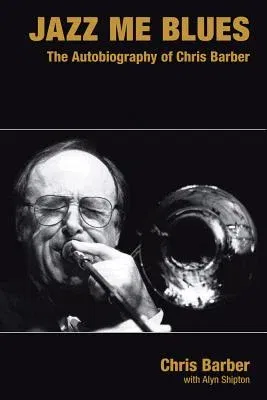Jazz trombonist Chris Barber formed his first band in the late 1940s,
but it is the band that he formed in 1952 and has led continuously from
1954, after parting company with trumpeter Ken Colyer, that has
established all kinds of records for success and longevity. His 54 year
partnership with trumpeter Pat Halcox is the longest such association in
jazz history. The Barber band achieved chart success on both sides of
the Atlantic, with 'Petite Fleur', and from the middle to late 1950s it
was the most popular music act in the UK. The band was one of the first
British jazz groups to tour extensively in the United States. It has
remained one of the most popular and widely imitated jazz bands in
Europe for over half a century.
In this candid account of his life and music, Barber tells the story of
his band, but also of his many other contributions to music in Britain.
He and his guitarist and singer Lonnie Donegan began the skiffle
movement. His band pioneered touring with authentic American blues and
gospel musicians, including Big Bill Broonzy, Sister Rosetta Tharpe,
Muddy Waters, Sonny Terry and Brownie McGhee. There were also tours with
American jazz soloists, including John Lewis, Trummy Young, Ray Nance
and many others. Barber and his colleague Harold Pendleton also launched
the Marquee Club in London, which became a legendary jazz and rock
venue, as well as becoming the launchpad for the Richmond and Reading
Festivals. Barber's band has always been devoted to both jazz and blues,
touring for many years with the charismatic Northern Irish singer
Ottilie Patterson, (who became Barber's wife) and also including the
blues guitarist John Slaughter in the line-up. In 2001, the band became
the Big Chris Barber Band, allowing him to continue to play the New
Orleans jazz he has always loved, but also to play the big band
repertoire of musicians such as Duke Ellington. The Big Chris Barber
Band continues to play a full schedule of concerts, confirming Barber's
commitment to bringing live jazz to audiences in Britain and on the
continent. The book covers the highs and lows of his career and that of
the band, as well as his passionate commitment to the cause of spreading
the word about jazz and blues to the widest possible public.

